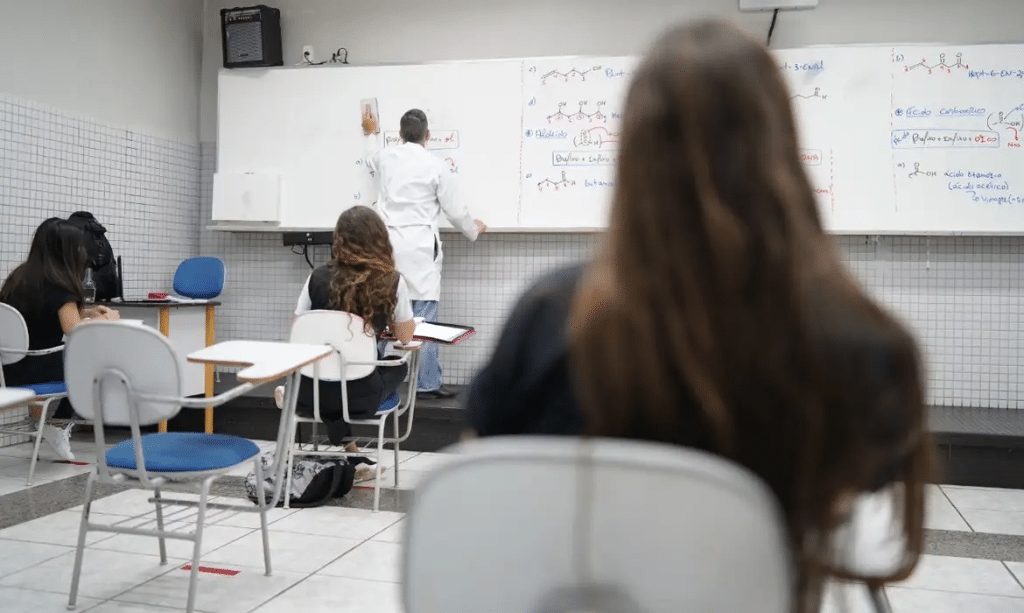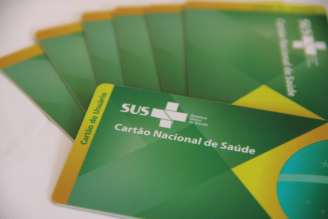Programas Educacionais do Governo: quais são as opções?
Descubra quais são os programa Educacionais do Governo e como funcionam cada um deles!
Sabia que existem vários programas Educacionais do Governo? Com eles, você tem a chance de conquistar o tão sonhado diploma. Descubra abaixo os principais programas educacionais do Governo e como funciona cada um deles!

Quais são os programas Educacionais do Governo?
Os programas criados pelo Governo Federal têm o objetivo de melhorar o acesso à educação, além de garantir a qualidade do ensino e promover a formação de habilidades essenciais para o mercado de trabalho.
Descubra uma lista com as principais opções, além de outras informações relevantes sobre as opções de programas.
Programa Universidade para Todos (ProUni)
O ProUni é um programa do Ministério da Educação (MEC) que oferece bolsas de estudo em instituições de ensino superior privadas para estudantes de baixa renda.
Os interessados devem ter feito o Exame Nacional do Ensino Médio (Enem) e obtido uma nota mínima para se qualificar.
As bolsas podem ser integrais ou parciais, cobrindo parte das mensalidades. O ProUni é uma excelente oportunidade para quem deseja ingressar em um curso superior.
Fundo de Financiamento Estudantil (FIES)
O FIES é outro programa importante que visa facilitar o acesso ao ensino superior. Diferente do ProUni, o FIES oferece financiamentos para a graduação em instituições privadas, com condições facilitadas de pagamento.
O estudante paga as mensalidades durante o curso e começa a quitar o financiamento após a conclusão da graduação.
As taxas de juros são reduzidas e o prazo para pagamento é estendido, tornando essa uma alternativa viável para quem precisa de um suporte financeiro mais longo.
Programa Idiomas sem Fronteiras (IsF)
O IsF é uma iniciativa que visa promover a internacionalização do ensino superior brasileiro, oferecendo cursos de idiomas gratuitos para estudantes, professores e servidores de instituições de ensino superior.
O programa abrange idiomas como inglês, espanhol, francês, alemão, italiano, japonês, mandarim e português para estrangeiros.
Essa capacitação linguística é essencial para preparar os participantes para intercâmbios, estágios e cooperação internacional.
SiSU
O Sistema de Seleção Unificada (SiSU) é uma iniciativa do Ministério da Educação (MEC) que visa democratizar e facilitar o acesso ao ensino superior público no Brasil.
Através do SiSU, instituições públicas de ensino superior disponibilizam suas vagas para os candidatos que participaram do Exame Nacional do Ensino Médio (ENEM).
Esse sistema unificado permite que os estudantes concorram a vagas em diversas universidades federais, estaduais e institutos federais de educação, ciência e tecnologia, utilizando a nota obtida no ENEM como critério de classificação.
Educação de Jovens e Adultos (EJA)
O EJA é um programa voltado para aqueles que não tiveram a oportunidade de concluir os estudos na idade apropriada.
Oferece cursos de ensino fundamental e médio em modalidades presenciais e a distância.
O objetivo é proporcionar uma segunda chance de formação, facilitando o acesso ao mercado de trabalho e ao ensino superior.

Pronatec
O Pronatec é uma iniciativa que busca ampliar as oportunidades de formação técnica e profissional. Oferece cursos gratuitos em diversas áreas, com o objetivo de qualificar a mão de obra e facilitar a inserção no mercado de trabalho.
Os cursos são oferecidos por meio de instituições parceiras e abrangem áreas como saúde, tecnologia, comércio e indústria.
O Pronatec é ideal para quem deseja adquirir novas habilidades ou requalificar-se para novas oportunidades profissionais.
Os programas educacionais do governo são uma poderosa ferramenta para democratizar o acesso ao ensino e promover a formação de uma força de trabalho qualificada.
Desde a educação básica até a pós-graduação, essas iniciativas buscam apoiar estudantes e profissionais em cada etapa do processo.





